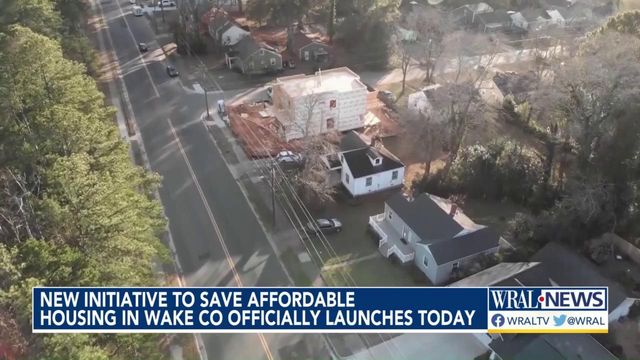Wake County partners with banks to protect existing affordable housing
A new initiative officially launched Wednesday to save existing affordable housing in Wake County.
Posted — UpdatedThe Wake County Board of Commissioners approved the fund in 2021 with a $10.5 million loan and multi-year contract with a Durham-based nonprofit financial institution, Self-Help Ventures Fund. The goal is to partner with big banks like Wells Fargo, Truist Bank and First Horizon Bank with with commitments to preserve available housing.
The city of Raleigh has also committed $4 million to do the same in city limits.
Since 2010, Wake County lost 59% of its housing units with rent below $750 per month and 40% of units with rent below $1,000 per month.
“It’s far easier to preserve a resource than to recreate it,” said Wake County Board of Commissioners Chair Matt Calabria. “By protecting our existing affordable housing, we can ensure families who’ve lived in affordable neighborhoods for generations don’t have to worry about getting priced out of their homes.”
Mayor Mary-Ann Baldwin made remarks at Wednesday's announcement.
The changes allow duplexes, townhomes and small apartment buildings in more neighborhoods and on smaller lots across Raleigh, creating more affordable housing options.and saving on energy costs.
According to the city of Raleigh website, "Because missing middle units share walls or ceilings with other units, they are substantially more energy-efficient than detached houses. According to the Department of Energy, a unit in a two-to-four-unit apartment uses half the energy of a detached house, and a townhouse uses about two-thirds of that amount."
As Baldwin explained, “If you can build three townhomes instead of one home, we have now housed three families. If you can build a duplex, we’ve housed two families instead of one in a McMansion.”
• Credits
Copyright 2024 by Capitol Broadcasting Company. All rights reserved. This material may not be published, broadcast, rewritten or redistributed.






